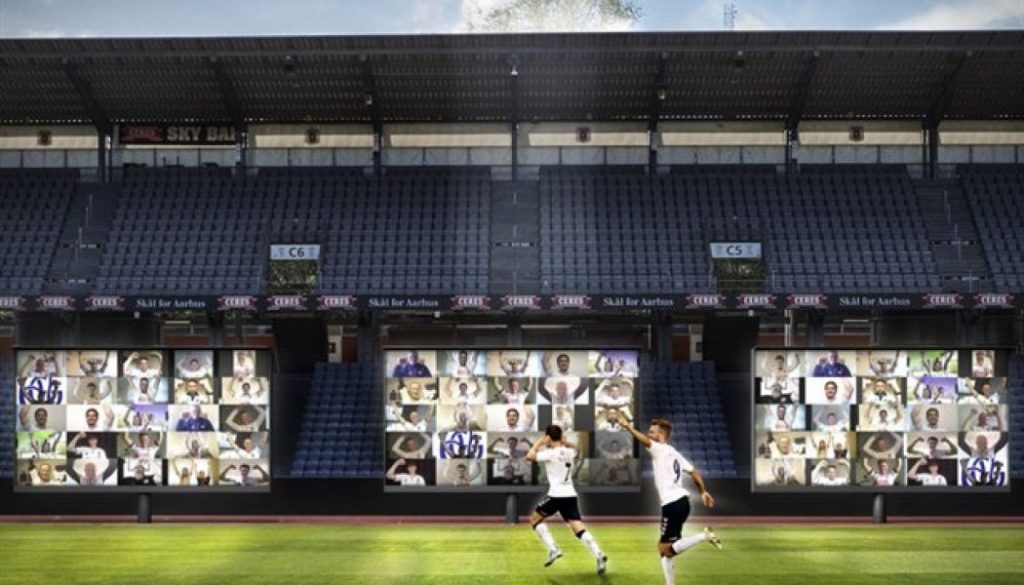Member Insights: How The Pandemic Created A New Breed Of Virtual Event
June 23, 2020
Tickitto look at how Coronavirus has created the requirement to evolve into the virtual world for many in the event industry.
The COVID-19 lockdown has made virtual events necessary for many industries. Many people have had to give up cheering with crowds, meeting new people, and hanging out with their friends while still trying to enjoy the latest sporting events, concert tours, and live panels.
In some instances and for specific use cases, when executed properly, virtual events can be used as an alternative for the traditional in-person events. However, the technology comes with some limitations to be kept in mind.
We took the time to analyse the three main types of events that saw a surge during the pandemic and the experience of attending those virtually.
Virtual Sport Matches
Conference apps like Zoom and Discord are allowing people to watch games from the comfortable distance of their own homes.
As Germany started lifting off restrictions, football games resumed behind closed doors. Borussia Dortmund Football Club fans joined in via a zoom session to watch their team play. We have also seen how Danish SuperLeague team AGF Aarhus made it possible for fans to join in and watch the match virtually.
Even though the technology allowed fans to reconnect with their teams, the German Bundesliga game attendees commented that watching the match on the screen felt somewhat dull and isolating. Watching your favourite team from home can hardly compete with the experience of being in a sports arena filled with fans. Furthermore, the energy in sporting events is essential to their appeal. The crowd cheering for their team when they score or mingling with fellow supporters at the drinks queue during half-time are all essential elements of an event.
Concerts and Festivals
With the help of streaming technology, many artists and musicians were able to reconnect with their audiences and took their performances to the virtual stage. Musicians like Pink, Coldplay, and John Legend found a way to perform for fans by using live streaming and social media.
Virtual concert platforms became more relevant and saw a significant increase in fundraising as the industry began to recognise the value of connecting musicians with their fans regardless of the circumstances. Streaming tech companies are also partnering up with some of the biggest names in the industry. For example, Big Hit Entertainment, the label behind the global K-pop supergroup BTS, just partnered with streaming-tech company Kiswe to stream their concerts.
In any case, it is essential to mention that performances might become one dimensional when filtered through technology. No platform or home can mimic the acoustics of a concert hall along with the energy of people singing along and dancing together.
Panel discussions
Panel discussions with creators or various speakers are another popular event category during the lockdown. Since people can no longer attend panels, some companies are using strategies like real-time illustrators to spice up their discussion broadcasts.
Both live and pre-recorded sessions are valid options for companies to bring these events to people trapped in their homes. With live sessions, audiences at home can still feel like they’re experiencing an event for the first time, which is ideal when discussions include breaking information, sports scores, or anything time-sensitive. On the other hand, pre-recorded sessions can be refined through technology to be high-quality entertainment with less downtime.
The real-time format of virtual panel discussions can be executed quite well as questions and answers that generally accompany those can be supported via the current tech platforms with features like raise your hand in Zoom and the Q&A feature. If needed, moderators can simply jump in and steer the conversation. However, virtual panels do hinder the opportunity for networking to some extent compared to real events.
Final Remarks
They say that necessity is the mother of invention, but in this case, the necessity of social distancing forced us to adapt to a new normal. It has taught us to fully embrace the capabilities and drawbacks of modern communications systems and, along with them, cloud-based event platforms tools. What lies next is not adjusting to accept those events, but instead recognising that these are rather a temporary measure while restoring confidence to re-host and attend physical events during the recovery phase.


